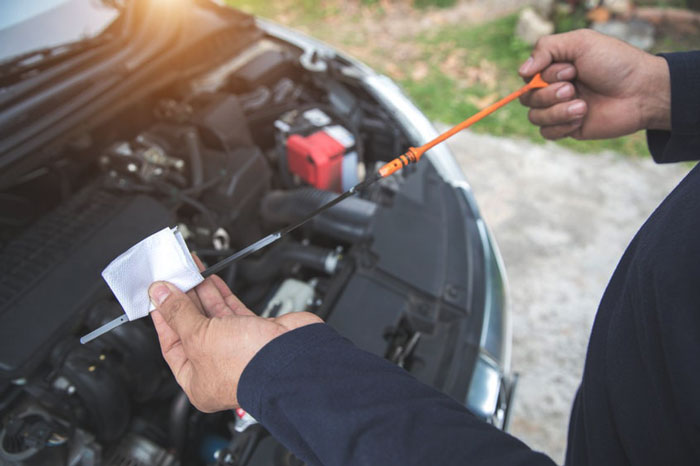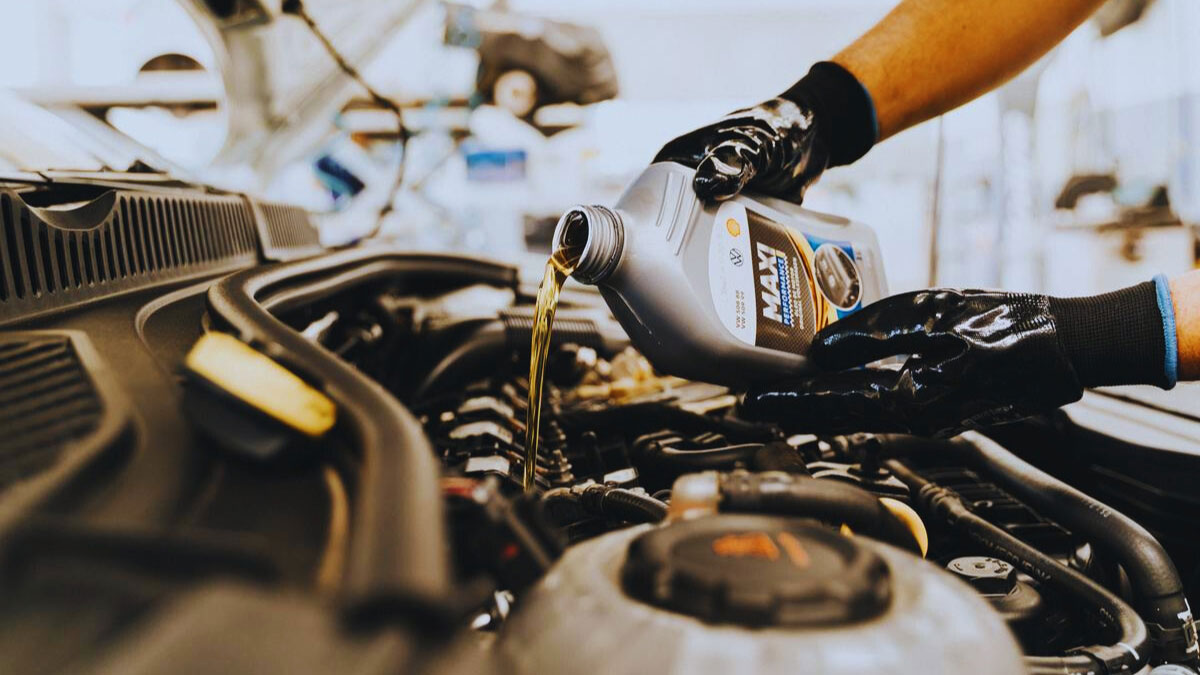Ever felt like your car’s engine is running on the last drops of coffee in a Monday morning office pot? Well, that could be a sign of low oil pressure – a car’s way of saying, “Help, I’m running on fumes here!” In my journey through the ups and downs of car ownership, I’ve encountered this greasy dilemma more times than I’d like to admit.
When your engine starts whispering sweet nothings about low oil pressure, it’s like a cryptic message from the car deities: “Thou shalt not neglect thy engine’s lifeblood!” Fear not, fellow road warriors, for I’ve delved into the depths of this oily mystery to uncover the causes and solutions to this automotive conundrum. So buckle up, grab a snack (or a wrench), and let’s jump into the slippery world of low oil pressure woes.
Understanding Low Oil Pressure
If you’re like me, you might sometimes feel like low oil pressure is just your car’s way of whispering, “I’m running on fumes, help a friend out!” So, let’s decode the mystery of low oil pressure together. Sounds like a job for Sherlock Holmes meets Mr. Bean!
What Is Oil Pressure?
Oil pressure is like the engine’s lifeblood pressure – it’s the force that keeps everything running smoothly under the hood. It’s that essential push that ensures all the moving parts in the engine stay lubricated and cool, avoiding a fiery engine tantrum.
Why Is Oil Pressure Important?
Oil pressure is the engine’s way of saying, “Hey, I’m chillin’ here, keeping things cool and slick for you.” It’s crucial because without it, your engine could throw a major hissy fit, leading to overheating, wear and tear, or even a full-on engine meltdown. So, think of oil pressure as your engine’s zen mode – keeping things serene and running like a well-oiled machine.
Common Symptoms of Low Oil Pressure
Ah, the warning lights, the unsung heroes of our dashboard dramas. They come on when we least expect it, like that friend who gives you ‘subtle hints’ that you’ve had enough dessert. When your car’s oil pressure is low, these warning lights will flash like paparazzi at a celebrity wedding – demanding attention!

Warning Lights and Alerts
When your car decides to play the diva and flashes that oil pressure light at you, it’s not for show; it’s a cry for help! Ignore it and you might end up in a situation less glamorous than a failed Hollywood romance. Your engine is shouting, “Help! I’m thirsty!” Don’t be that person who waits for the sequel; act fast!
Engine Noise and Performance Issues
Imagine your car’s engine as a rock band – when it’s running smoothly, it’s like a concert at Hyde Park; but with low oil pressure, it sounds more like a garage band in a metal grinding factory. If your engine starts making noises that sound like a mix of Chewbacca and a grumpy cat, it’s time to show some love. Trust me; you don’t want your car to sound like the percussion section of a chaotic orchestra!
Causes of Low Oil Pressure
Ah, the mysterious culprit behind the turmoil in your engine – low oil pressure. Let’s unravel the tangled web of reasons why your engine might be feeling under the weather.
Insufficient Oil Volume
Picture this: your engine is parched, gasping for oil like a desert wanderer seeking water. Insufficient oil volume is akin to sending an army into battle without weapons – destined for a chaotic retreat. Keep those oil levels in check to ensure your engine doesn’t go AWOL on you.
Incorrect Oil Viscosity
It’s like serving soup with a fork – just not the right fit. Incorrect oil viscosity can lead to sluggish performance, akin to trying to run a marathon in flip flops. Ensure you’re using the right oil viscosity for your engine to keep things running smoothly.
Oil Pump Failure or Wear
Imagine a heart that’s lost its rhythm – that’s your engine with oil pump failure or wear. A failing oil pump can disrupt the flow of life-sustaining oil, causing your engine to beat erratically. Keep that oil pump humming to the right tune to avoid a breakdown.
Clogged or Dirty Oil Filters
Think of clogged oil filters as a traffic jam in your engine’s bloodstream. Dirty oil filters can obstruct the flow of oil, leading to sluggish performance and potential engine damage. Keep those filters clean and clear – your engine will thank you later.
Diagnosing Low Oil Pressure
When faced with low oil pressure, it’s crucial to diagnose the issue promptly to avoid potential engine damage. Let’s jump into the key steps to identify the root cause of low oil pressure in your vehicle.
Checking Oil Level and Quality
First things first, ensure your engine oil level is adequate and of good quality. Think of it as checking if your car’s engine has had its morning coffee; without it, things might not run smoothly. Here’s how to go about it:
- Park your car on a level surface and let the engine cool for a few minutes.
- Locate the oil dipstick, pull it out, wipe it clean, reinsert it, and then pull it out again to check the oil level.
- Check the color and consistency of the oil. Fresh oil resembles honey, while old oil can be dark and thick like molasses.
- If the oil level is low or the quality doesn’t look right, it may be time for an oil change.
Assessing the Oil Pump and Filters
Next on our oil pressure investigation is examining the oil pump and filters. Picture it as giving your car’s heart a check-up to ensure its rhythm stays steady. Here’s what you need to do:
- Inspect the oil filter for any signs of clogging or dirt buildup. A clogged filter can hinder proper oil flow.
- Check for any leaks around the oil filter or the oil pan that could lead to oil pressure issues.
- Have a mechanic assess the oil pump’s functionality to see if it’s working correctly.
Evaluating Engine Condition
Finally, let’s investigate into assessing the overall condition of the engine. Imagine it as inspecting the traffic flow in your engine’s bloodstream. Here’s how you can evaluate the engine’s health:
- Look for any visible leaks under the car that may indicate oil leakage.
- Listen for any unusual engine noises, which could signal internal engine issues.
- Monitor the dashboard warning lights for any alerts related to low oil pressure.
Effective Solutions for Low Oil Pressure
When faced with the pesky problem of low oil pressure in your beloved car, fear not! Here are some out-of-the-box solutions that will have your engine purring like a contented kitten in no time.
Regular Oil Changes and Maintenance
Ah, the classic solution to many automotive troubles – regular oil changes! Just like how I need my morning cup of coffee to function properly, your engine craves fresh oil to keep everything running smoothly. Set those reminders and show your engine some love with timely oil changes.
Choosing the Right Oil
It’s like picking the perfect outfit for your engine – choosing the right oil is essential. Make sure you’re using the correct oil viscosity recommended for your car. Don’t confuse your engine with oils that are too thick or too thin; find the Goldilocks of oils that’s just right!
When to Seek Professional Help
Sometimes, even though our best efforts, our engines need a little extra TLC. If you’ve checked the oil level, quality, pump, and filters but the low oil pressure issue persists, it’s time to wave the white flag and call in the professionals. Just like exploring through a traffic jam, let the experts steer your engine back on the road to health.
Conclusion
So, there you have it – low oil pressure in your car is like waking up without your morning coffee. It’s a big no-no if you want your engine to run smoothly and avoid any breakdown dramas. Remember, keeping the oil flowing is like maintaining a good traffic flow in your car’s bloodstream. Don’t ignore those warning lights; they’re like your engine’s way of saying, “Hey, I need help here!” Just like how a heart needs a check-up, your car’s engine needs some TLC too. So, stay on top of your oil changes, pick the right viscosity, and if things still aren’t right, don’t be afraid to call in the professionals. Your car will thank you for it!
Frequently Asked Questions
What is the importance of oil pressure in a car’s engine?
Oil pressure is crucial for proper lubrication and cooling in a car’s engine. It helps prevent malfunctions and ensures all moving parts work smoothly.
What are common symptoms of low oil pressure?
Common symptoms of low oil pressure include engine knocking noises, oil light warnings on the dashboard, and decreased engine performance.
How can I address low oil pressure warning lights promptly?
It is essential to address low oil pressure warning lights promptly by checking the oil level, viscosity, and ensuring there are no leaks in the system.
What causes low oil pressure in a car’s engine?
Low oil pressure can be caused by insufficient oil volume, incorrect oil viscosity, oil pump failure, or clogged filters in the engine.
What are effective solutions for low oil pressure?
Effective solutions for low oil pressure include regular oil changes, using the correct oil viscosity, and seeking professional help if issues persist.

